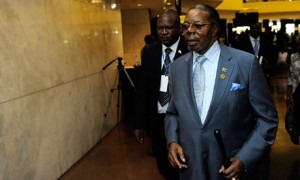Cutting UK aid to Malawi will hurt the poor not the leaders
Published on April 30, 2011 at 9:48 AM by FACE OF MALAWI

Malawi's president, Bingu wa Mutharika, is in constant conflict with an increasingly outspoken civil society. Photograph: Tony Karumba/AFP/Getty Images
Britain’s diplomatic row with Malawi, one of its foremost aid recipients, could put funding under scrutiny by London. But withdrawing it would be a mistake.
The news that Malawi has expelled the British high commissioner, Fergus Cochrane-Dyet, for a leaked diplomatic cable that criticised the country’s president, Bingu wa Mutharika, of becoming “more autocratic and intolerant of criticism”, came as little surprise to those familiar with the political situation in this southern African country.
The deterioration of media freedoms and minority rights, and the perennial lack of fuel and shortage of foreign exchange has exposed the government to criticism from local non-government and civil society organisations. Furthermore, two colleges of the University of Malawi remain closed after a standoff between the government and academic staff. It began after a lecturer was detained by police for allegedly discussing the north African uprisings with his students. The lecturer and some of his supporters lost their jobs few weeks later.
Malawi ended 31 years of dictatorship in a 1993 referendum, followed by a general election in 1994, which ended the then “life president” Hastings Kamuzu Banda’s draconian rule. The majority of Malawians, and certainly those now in positions of power, grew up under his regime. Those decades of political marginalisation, with the previous 73 years of British colonial rule, have created something of a fatalistic nation where the majority of citizens appear to accept their “lot” – fearful of seeking ways to express opposition to those in power.
The current leadership seems to be capitalising on this mentality but is in constant conflict with an increasingly outspoken civil society. Mutharika has not shied away from being explicit about how he will deal with critics. Last December, he told a public rally: “Jesus, the son of God … said turn the other cheek. Do you want me to be Jesus? That was Jesus, the son of God, I am Bingu … you slap me here, I will hit you. That is the way life is.”
T message strongly reinforces the prevailing culture of silence. This became clear in recent research by the Institute of Development Studies on food security in Malawi. Research participants were extremely wary of being seen to be critical of the government – so much so that some of the research material had to be censored so as not to compromise participants. The climate of fear was palpable.
As a British national, Cochrane-Dyet is perhaps lucky he was “merely” expelled.
A year on, it seems Malawi has reached a stage where freedoms are so restricted and arrests so commonplace that people perhaps feel they have little to lose, and space for discourse is finally emerging. On a recent trip to Malawi, we were surprised to find that discussions among colleagues were openly critical of the government in general and the president in particular.
We left Malawi the day the story of the high commissioner’s comments broke in the national press. Neither the leaked comments nor the government’s actions are a surprise to anyone in Malawi. In fact, the comments in the UK envoy’s letter were very similar to those by the Malawi Catholic bishops’ Episcopal letter late last year.
So what are the implications of this for the future of development in Malawi? With 75% of the population living on less than a dollar a day, and the country’s heavy indebtedness, any withdrawal of aid by the UK, Malawi’s largest bilateral donor, is likely to decimate this already struggling nation.
The high commissioner’s cable also highlighted this point. The government is unlikely to respond positively to any threats the UK or other donor nations make, nor are they taking seriously any moves by the local NGOs or civil society groups to hold them to account. The deterioration of freedom of speech looks set to continue – but with the slow opening up of alternative discourse in the country, Malawi may yet be ripe for an Arab spring of its own.
• Liz Allcock is country projects convenor for IDS Knowledge Services. Jimmy Kainja is an independent Malawian researcher based in London
